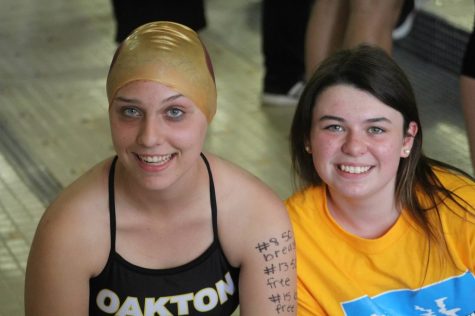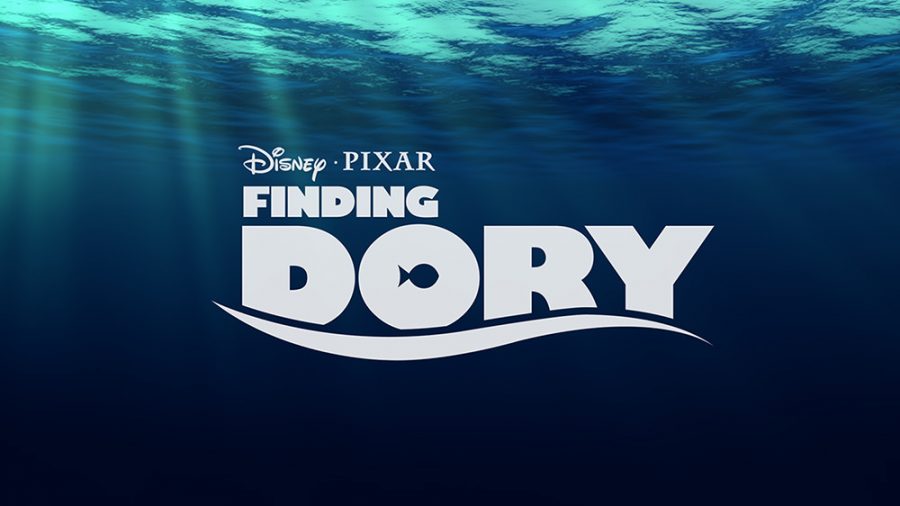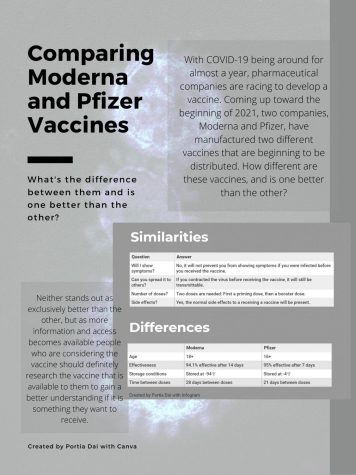Dory swims to the hearts of people with mental disabilities
How “Finding Dory” shows people with mental disabilities in a positive light
*This story has spoilers to the movie “Finding Dory”
“Finding Dory” was undoubtedly the most anticipated movie of summer 2016. As the sequel to a fan-favorite “Finding Nemo,” the film did spectacular in theaters with a global gross of $1 billion to date, according to “Box Office Mojo.” However, the story and message of “Finding Dory” is something that the audience doesn’t really think about.
One of the main themes of the film is to never give up, as shown by Dory, played by Ellen DeGeneres, when she tries to find her parents. This is a valuable lesson to teach children, but the film really hits it home to another audience: people with mental disabilities. As notable in the film and “Finding Nemo,” Dory suffers from short-term memory loss, so she’s never been able to recall memories of her childhood or family after losing them. In the beginning of the movie, Dory suddenly has a flashback of her childhood, remembers her parents, Jenny and Charlie, and hesitantly claims that she has to find them, thus beginning her journey. As Nemo, Marlin, and Dory set out to find her parents, Degeneres’ character begins to remember other memories from her past, leading her to her parents. Dory’s story ultimately changes the game, as the directors Andrew Stanton and Angus MacLane begin to change people’s perspectives of others with mental disabilities with a positive light.
Often times, people with mental disabilities are not the media’s focus. These individuals’ community are not represented enough in today’s culture, but “Finding Dory” has just changed this by elaborating on Dory’s story and her disability. The film has not only taught abled-individuals to persevere, but it has also given children with mental disabilities the benefit of the doubt by telling them they can do anything they set their mind to. No matter how impossible it may seem, such as the extent of Dory’s quest to find her parents, anyone’s goals are achievable.
Another lesson that “Finding Dory” has taught to people with mental disabilities is that there are always people to support them. Even though Marlin doubts Dory’s abilities, Nemo eventually gets him to support Dory’s mission to find her parents, which is essential to her achieving her goal. Constant love and support isn’t something often given to people with disabilities. Some believe that it’s not a big deal if someone has a disability. However, mentally-disabled individuals make up the biggest minority, roughly 18.2 percent or one in five Americans, yet they aren’t treated as they should be. They are often left behind because the majority of people think they aren’t capable of doing certain jobs or actions, but they wouldn’t know because they’ve neglected to find out. “Finding Dory” shows that there is no other way to truly help someone with a mental disability than giving them the constant love and support they need and deserve.
It is important to note that this film can change everything. Dory and her wonderful story can achieve great things in inclusion for those with mental disabilities. Whether it be including them in the workforce or general education, “Finding Dory” gives their audience a sense of confidence and love when they watch the film, regardless of their abilities.
For its audience without mental disabilities, “Finding Dory” demonstrates that kindness is key. Simply being kind to people, no matter the differences between each individual human, is something everyone should do. It is important to always be open to other people and get to know them before making a judgment, and in Degeneres’ words, everyone needs to learn to “be kind to one another.”
Isha Mahadeshwar, a junior, thought “Finding Dory” was better than “Finding Nemo.” “I thought it was a sweet and entertaining movie,” said Mahadeshwar. Not only was it sweet and entertaining, “Finding Dory” also showed that Dory can “accomplish whatever she wants with the help and support of her peers” according to Mahadeshwar. She also said that “short term memory loss should not be a setback to her success.” Mahadeshwar said that “Finding Dory” could be telling the audience of people with mental disabilities that they can “continue to push towards [their goals] despite the obstacles.” She also said, “It shows that it is always healthy to have strong and loving people to support you in every step of the way.” For those without disabilities, Mahadeshwar says it is also that they can persevere and have a strong support group, but also to do good deeds. “You will never know what an impact it can have and how it can help you later on,” Mahadeshwar said.
Brenna DeBellas, an Oakton 2015 graduate and sister of Gamma Phi Beta at Virginia Tech, says that “Finding Dory” represents disability culture. “It’s awesome that Dory, the main character, saves the day not in spite of but because of her disability,” said DeBellas. She also said that it’s interesting that more than one character is handicapped, such as blind and non-verbal characters like Becky and Gerald. DeBellas also said that the film successfully portrayed those with mental disabilities in a positive light. She said, “Dory, who suffers from a cognitive disability, remains independent throughout the entire movie. She becomes less of a liability and more of an asset.” The message that “Finding Dory” gives to those with mental disabilities is that they can accomplish anything they set their mind to according to DeBellas. “Be accepting to everyone. Everyone has a different talents and passions to offer the world,” DeBellas said about the message for people without mental disabilities.
“Finding Dory” is debatably one of the greatest films that accurately shows the disabled culture. Its message of never giving up and promotion of inclusion of mentally-disabled people is embedded within every scene and is truly something that leaves the audience with something to think about after watching. The film encourages everyone, regardless of their abilities, to “just keep swimming.” “Finding Dory” comes out on DVD on Tuesday, Nov. 15. Until then, here is a video of the compiled trailers here. You can also choose to pre-order the DVD here.

As a veteran of the Oakton Outlook, Jennifer (right) has seen the paper and her skills evolve since the beginning of her time as a member of the staff....









